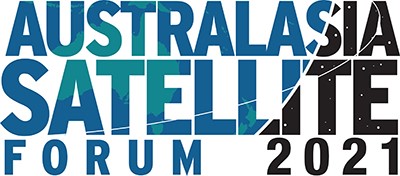|
UNSW Canberra welcomes
announcement of Department of Defence’s new Space
Division
UNSW Canberra Space has been buoyed
by an announcement today from the Department of Defence,
who will begin construction on a Space Division
headquarters within the Royal Australian Air Force
(RAAF) in early 2022, marking a major step forward for
Australia’s space sector.
The Australian government has
committed to significantly increasing investment in
Defence’s space capabilities by investing around $7
billion this decade to boost the country’s access to
space, space services and geospatial information.
UNSW Canberra Space Director
Professor Russell Boyce welcomed the move. He said a
separate combined investment of $30 million by RAAF and
UNSW into UNSW Canberra Space has grown unparalleled
experience in space missions and technology development
in Australia, that can only be realised by tackling the
harsh challenges of space and improving, mission after
mission – rather than solely reading about space from
textbooks.
“This experience is a necessary
foundation for the trusted technical advice that RAAF
will need as it develops its space division, and it
enables us to provide the perfect learning environment
at ADFA, through learning by doing, for Defence’s future
space workforce,” Professor Boyce said.
UNSW Canberra Space has one of the
largest concentrations of space researchers in
Australia, some 30 academic and professional staff with
facilities to enable end-to-end space mission
capability, including the Australian National Concurrent
Design Facility.
UNSW Canberra Space is Australia’s
most experienced capability for the development and
deployment of miniature satellites (cubesats).
The announcement of funding from
the Department of Defence comes as UNSW Canberra Space
carefully operates its latest satellite space mission,
M2, which was launched on March 23, 2021.
The M2 mission encompasses two
advanced satellites, which will demonstrate technologies
for Earth observation, particularly maritime
surveillance, Space Domain Awareness, satellite
communications and in-orbit artificial intelligence for
RAAF.
“These missions for RAAF have grown
Defence’s capacity and capability for developing and
operating space technologies to meet national needs, and
lessons learnt feed directly into both our space
education and our thought leadership activities,”
Professor Boyce said.
“The team has now spawned three
Canberra-based spin-off companies, has established a
domestic supply chain of approximately 30 organisations
to support the missions, and is a major contributor to
the growth of the Australian space sector creating
multiple jobs along the way.”
Defence also announced Air
Vice-Marshal Cath Roberts was selected as the inaugural
Head of Defence Space Division.
UNSW Defence Research Institute
Director Vice Admiral Paul Maddison added that from
internet access to communication, navigation, weather
forecasting, and overhead imaging, the space domain has
become increasingly critical to enabling the daily lives
of Australians.
“As space becomes increasingly
congested and contested, the Australian Defence Force’s
prioritisation of and investment in space will ensure it
remains accessible and secure for Australians. UNSW is
delighted to see Air Vice-Marshal Cath Roberts’
appointment as the inaugural Head of Defence Space
Division, and looks forward to continuing our support to
ADF space education, missions and capability development
under her leadership,” Vice Admiral Maddison said.
Chief of Air Force, Air Marshal Mel
Hupfeld AO, DSC, said assured access to space was
critical to enabling Defence’s multi-domain operations.
“We use space daily for
understanding the weather, navigating, access to
geospatial information and sharing information across
Australia or across the world,” Air Marshal Hupfeld
said.
“Defence is delivering capabilities
including Space Domain Awareness, sovereign controlled
satellite communications and space-based Earth
observation, and navigation.
“The government has committed to
significantly increasing investment in Defence’s space
capabilities by investing around $7 billion this decade
to ensure our access to space, space services and
geospatial information,” Air Marshal Hupfeld said.

Fullerton (formerly
Westin) Hotel, Sydney
New Dates - 22 & 23 June 2021
Contact: kfrench(@)talksatellite.com
|